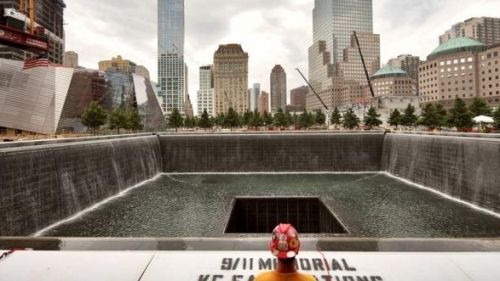9/11 Study Finds That Responders Have Elevated Risk of Some Cancers

The first results are in from the most comprehensive study so far conducted on health risks associated with the World Trade Center. While the study does find that there are elevated incidences of cancer among people close to Ground Zero, it also leaves many questions unanswered.
The study was made up of 55,778 New York state residents who enrolled in the World Trade Center Health Registry in 2003 and 2004. Of those, 21,850 recovery and rescue workers were included, while 33,928 individuals who were not involved with the rescue or recovery were used as controls. Anyone who was diagnosed with cancer before the attacks was disqualified from being included in the study.
Most of the individuals were voluntarily enrolled, which could have skewed the data if individuals enrolled because they were feeling symptoms. In addition, the participants were tracked from the time of their enrollment until 2008. That is only seven years after the attack and cancer often takes much more time to develop. Some critics say that anyone who developed cancer within these seven years was likely to develop it anyway.
Researchers found that rescue and recovery workers, who would have indeed had greater contact with potentially cancer-causing chemicals in the dust and debris, had an increased risk for prostate, thyroid, and a type of blood cancer called multiple myeloma. However, researchers did not find that workers with the most exposure were most likely to suffer from cancer, which would seemingly contradict the link between the attacks and cancer. In addition, there was no increased risk of lung cancer, despite workers breathing in a lot of potentially toxic dust and smoke. Researchers also wonder why the attacks would cause an increased risk of prostate cancer.
The study also does not contain data on whether participants had a family history of cancer or whether enrollees had cancer that had gone undiagnosed until after the attacks. Participants also received more cancer screenings than other people, which may have skewed the results.
Regardless, researchers were determined to get out the data that they had early because they felt that there was a great public interest in the matter. This study was published in the Journal of the American Medical Association just months after the government added certain types of cancers to the type of illnesses covered by a program that provides health insurance to the victims of the disaster.
Doctors note that the majority of people exposed to these chemicals will not go on to develop cancer. They say that those at risk should simply focus on eating healthy, exercising, and not to smoke in order to live a healthy lifestyle.
Published by Medicaldaily.com



























